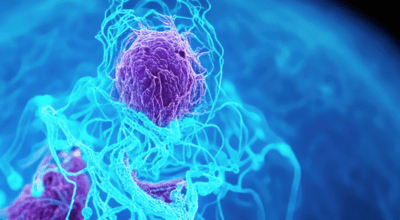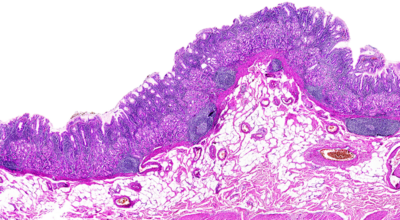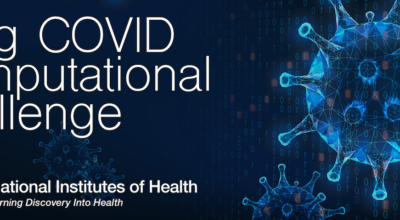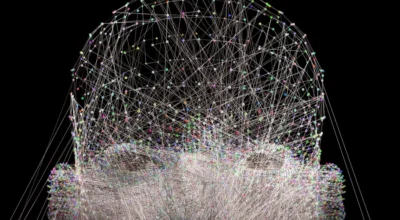
Kevin B. Johnson Co-Authors National Academy of Medicine AI Code of Conduct
Kevin B. Johnson, MD, MS, co-authored a National Academy of Medicine report guiding the ethical use of AI in health and medicine.

Nishant Sinha, PhD
Dr. Sinha is a neuroscientist whose research bridges neural data science, clinical neuroscience, and scalable computational tools to advance personalized care for neurological disorders. His lab integrates multimodal neural data, […]

Srinath Adusumalli, MD, MSHP, MBMI
Srinath (Sri) Adusumalli, MD, MSHP, MBMI, is Vice President and Chief Health Information Officer (CHIO) at Penn Medicine, University of Pennsylvania Health System, and an Associate Professor of Clinical Medicine […]

Drs. Xiang Li, Weijie Su, & Qi Long Propose a Novel Strategy for Robust Detection of AI-Generated Text
Penn researchers have developed an innovative approach for detecting AI-generated text that remains accurate even after human edits.

Sydney Pugh, PhD
Dr. Sydney Pugh is a Postdoctoral Researcher in the Artificial Intelligence for Ambulatory Care Innovation (AI-4-AI) Lab within the Informatics Division at DBEI, advised by Dr. Kevin Johnson. Her research […]

Sriharsha Mopidevi, MS
Sriharsha Mopidevi is a Senior Application Developer in the Artificial Intelligence for Ambulatory Care Innovation (AI-4-AI) Lab in the Department of Biostatistics, Epidemiology, and Informatics at the University of Pennsylvania. […]

Kwangmoon Park, PhD
Dr. Kwangmoon Park is a Postdoctoral Researcher at the University of Pennsylvania, where he works with Professor Hongzhe Li. He received his Ph.D. in Statistics from the University of Wisconsin-Madison […]

Xiaotian Hou, PhD
Dr. Xiaotian Hou is a Postdoctoral Researcher in the Department of Biostatistics, Epidemiology, and Informatics at the University of Pennsylvania. He obtained his Ph.D. in Statistics from Rutgers University, advised […]

Huilin Tang, PhD
Huilin Tang, PhD, is a postdoctoral researcher at the Perelman School of Medicine, University of Pennsylvania. He earned his PhD in Pharmaceutical Outcomes and Policy from the University of Florida […]

Shu Yang, PhD
Dr. Shu Yang is a postdoctoral researcher in the Informatics Division at DBEI, working with Dr. Li Shen. He earned his Ph.D. in Computer Science from the University of British […]

Kyle M. Stanley, PhD
Before joining Penn, Dr. Kyle Stanley received his Ph.D. in Statistics from Penn State University and his B.A. in Mathematics at Bowdoin College. He also worked for two years as […]

Maxwell Salvatore, MPH, PhD
Dr. Maxwell Salvatore is a Postdoctoral Fellow working with Dr. Yong Chen in the Department of Biostatistics, Epidemiology, and Informatics and Dr. Marylyn Ritchie in the Department of Genetics. Dr. […]

Alan Wu
Alan Wu is a Master’s student at Penn studying data science. Alan recently received his BS in Computer Science from Rutgers University. He is generally interested in machine learning applications […]

Junhyeong Lee
Junhyeong Lee is a visiting graduate student in Seungguen Lee (Shawn)’s lab. His research focuses on early disease prediction using EHR data and polygenic risk score through SNP heritability estimation, […]

Akira Nair
Akira is a graduate student from the Graduate Group in Genomics and Computational Biology (GCB) and has joined the Kim Lab for a rotation since spring 2025. He received his […]

Lina Takemaru
Lina is a PhD student from the Graduate Group in Genomics and Computational Biology (GCB). She has been co-mentored by Dr. Derek Oldridge at CHOP. She received her BS in Biometry and […]

Yidi Huang
Yidi Huang is a graduate student from the Graduate Group in Genomics and Computational Biology (GCB) and has joined the Kim Lab in July, 2023. He previously received his BS in […]

Matthew Lee
Matthew Lee is a graduate student from the Graduate Group in Genomics and Computational Biology (GCB) and has joined the Kim Lab in July, 2022. He has been co-mentored by Dr. John […]

Manu Shivakumar, MS
Manu Shivakumar is a graduate student from the Graduate Group in Genomics and Computational Biology (GCB) and has joined the Kim Lab in July, 2022. He was previously a bioinformatician in […]

Jaesik Kim, MS
Karl Jaesik Kim is a graduate student from the Graduate Group in Bioengineering. He is interested in biomedical informatics, machine learning, deep learning, polygenic risk score (PRS), omics data integration, vision […]

Erica Suh
Erica Suh is a graduate student from the Graduate Group in Genomics and Computational Biology (GCB) and has joined the Kim Lab in July, 2021. She is interested in applying […]

Chang-Uk Jeong
Chang-Uk Jeong has joined the Kim Lab as a data associate at the Center for AI-driven Translational Informatics (CATI) in July 2024. He is interested in translational bioinformatics, omics data […]

Jaehyun Joo, PhD
Dr. Jaehyun Joo’s primary focus is biomedical data science, leveraging large and complex datasets to address health challenges through statistical and machine learning methods. He is interested in bioinformatics approaches […]

Jonghyun Lee, PhD
Dr. Jonghyun Lee has joined the Kim Lab as a postdoctoral fellow since March 2024. He is interested in machine learning algorithms and real-world applicable methodologies for the biomedical field. […]

Dong-gi Lee, PhD
Dr. Dong-gi Lee joined the Kim Lab in September 2022. His research interests include graph-based machine learning algorithms and applying them in fields of biomedical informatics. He is also interested […]

Parker Wilson, MD, PhD (Pathology)
Assistant Professor of Pathology and Laboratory MedicineMember, Institute of Diabetes, Obesity and Metabolism – University of Pennsylvania Department: Pathology and Laboratory Medicine Contact 713B Stellar-Chance Laboratories BuildingPhiladelphia, PA 19104 Office: 215 […]

Kyle R. Jackson, MD, PhD
Kyle R. Jackson, MD PhD, is an Assistant Professor of Epidemiology at the University of Pennsylvania and a Senior Scholar at the Center for Clinical Epidemiology and Biostatistics. He is […]

Yonghyun Nam, PhD
Yonghyun Nam is a Research Assistant Professor of Informatics in the University of Pennsylvania’s Perelman School of Medicine. He joined the faculty in 2025 after completing postdoctoral and research associate […]

Zhi Huang, PhD
Dr. Huang is an Assistant Professor of Pathology and Laboratory Medicine, with a secondary appointment in the Department of Biostatistics, Epidemiology, and Informatics at the University of Pennsylvania Perelman School of Medicine. […]

Shefali Setia Verma, PhD
Dr. Shefali Setia‑Verma is an Assistant Professor in the Department of Pathology and Laboratory Medicine and the Division of Informatics within the Department of Biostatistics, Epidemiology, and Informatics at the Perelman […]

Kenrick Cato, PhD, RN, CPHIMS, FAAN, FACMI
Kenrick Cato, PhD, RN, CPHIMS, FAAN, FACMI is a Professor of Informatics at the University of Pennsylvania School of Nursing and a Nurse Scientist for Pediatric Data and Analytics at […]

Susan Harkness Regli, PhD
Dr. Regli’s career in the fields of human factors and human computer interaction has spanned both industry and academia to bring innovative solutions into practice to improve human performance. As […]

Community Spotlight: Dr. Jordana Cohen
Jordana B. Cohen, MD, MSCE is an Associate Professor of Medicine and Epidemiology in the Department of Biostatistics, Epidemiology, and Informatics, a Senior Scholar in the Center for Clinical Epidemiology and Biostatistics (CCEB), and a Fellow at the Leonard Davis Institute of Health Economics.

Exploring AI and Precision Health: A Recap of the 2025 DBEI Research Day
The 2025 DBEI Research Day highlighted groundbreaking advancements in precision health and artificial intelligence. Attendees engaged in insightful discussions, showcasing innovative research and fostering collaboration to advance health, science, and education.

AI ‘Scribe’ Reduces Clinician Workload, Improves Patient Interaction
Kevin B. Johnson, MD, MS, and Penn Medicine researchers conducted a study demonstrating how an AI-powered scribe technology reduces clinician workload, enhances patient interactions, and decreases after-hours documentation, improving efficiency and easing physician burnout.

Celebrating Informatics Excellence: Johnson and Shen Recognized by ACMI
Kevin B. Johnson, and Li Shen—faculty in the Division of Informatics—were recognized by the American College of Medical Informatics (ACMI) at the AMIA 2024 Annual Symposium.

Using AI to Uncover Hospital Patients’ Long COVID Care Needs
In a new study, Yong Chen, PhD and colleagues at Penn Medicine, used AI and latent transfer learning to analyze long-COVID data, identifying four patient sub-populations with distinct care needs, improving hospital resource allocation and tailoring treatment for diverse patient populations.

AI Tool Analyzes 30K Data Points Per Medical Imaging Pixel in Cancer Search
Mingyao Li, PhD and her Penn Medicine colleagues developed an AI-powered tool called MISO (Multi-modal Spatial Omics) that can detect cell-level characteristics of cancer by looking at data from extremely small pieces of tissue—some as small as the width of five human hairs.

Community Spotlight: Dr. Joseph Romano
Joseph Romano, PhD, MPhil, MA is an Assistant Professor of Informatics in the Department of Biostatistics, Epidemiology and Informatics, Senior Fellow in the Institute for Biomedical Informatics (IBI) and an investigator in the Center of Excellence in Environmental Toxicology (CEET).

Alumni Spotlight: Rui Duan, PhD
Before joining Harvard University as an Assistant Professor of Biostatistics, Rui Duan, PhD, completed her PhD in Biostatistics at the University of Pennsylvania.

Alumni Spotlight: Edward Kennedy, PhD
Edward Kennedy, PhD is a Penn alum through and through—prior to completing his PhD in Biostatistics in 2016, he earned his BA in Mathematics (2007) and MA in Statistics (2014) from the University.

Li Shen, PhD, FAIMBE, FACMI, FAMIA
Dr. Shen is a Professor and the Interim Director of the Informatics Division in the Department of Biostatistics, Epidemiology and Informatics at the Perelman School of Medicine in the University […]

Fuchiang (Rich) Tsui, PhD, FAMIA, IEEE Senior Member
Dr. Tsui is an engineer, computer scientist, and biomedical informatician. His research focuses on three areas: 1) Developing methods using AI, machine learning, natural language processing, data science, data engineering, […]

Ryan Urbanowicz, MSE, PhD
Dr. Urbanowicz’s research focuses on the development, evaluation, and application of machine learning (ML) and artificial intelligence (AI) methods for the analysis of biomedical and clinical data. This work is […]

Joseph D. Romano, PhD, MPhil, MA, FAMIA
Joseph D. Romano is an Assistant Professor of Informatics and Pharmacology in the University of Pennsylvania’s Perelman School of Medicine. He joined the faculty in 2023 after completing postdoctoral and […]

Qi Long, PhD
Dr. Long’s research program marries innovative statistical and ML/AI research with impactful biomedical research. His lab has focused on developing robust statistical and ML/AI methods and models for advancing intelligent […]

Jeffrey S. Morris, PhD
In addition to his professorial role, Dr. Morris serves as Director of the Division of Biostatistics. His research interests focus on creating hybrid ML-AI/statistical tools for extracting knowledge from large-scale […]

Danielle Mowery, PhD, MS, MS, FAMIA
Dr. Danielle Mowery is a collaborative investigator that develops natural language processing (NLP) solutions for processing clinical texts – i.e., clinical notes, chatbots, and transcribed texts – to support clinical […]

Kevin Johnson, MD, MS, FAAP, FAMIA, FACMI
Kevin B. Johnson, MD, MS is the David L. Cohen University Professor of Biomedical Informatics, Computer and Information Science, Pediatrics, and Science Communication at the University of Pennsylvania, Vice President […]

Dokyoon Kim, PhD
Dr. Dokyoon Kim is an Associate Professor of Informatics and serves as the Director of the Center for AI-Driven Translational Informatics (CATI). He also holds the role of Associate Director […]

Rebecca A. Hubbard, PhD
Dr. Rebecca Hubbard’s lab focuses on the development, application, and evaluation of statistical methods for the analysis of real-world data (RWD) such as electronic health records (EHR) and medical claims […]

Michael Harhay, PhD, MPH
Dr. Harhay, Founding Director of the Center for Clinical Trials Innovation, specializes in the statistical design, analysis, and interpretation of large randomized trials and cohort studies. He has been involved […]

John H. Holmes, PhD, FACE, FACMI, FIAHSI, FAMIA
John H. Holmes, PhD, is Professor of Medical Informatics in Epidemiology at the University of Pennsylvania Perelman School of Medicine. He is the Associate Director for Education and Training and […]

Jinbo Chen, PhD
Dr. Jinbo Chen is Professor of Biostatistics in the Department of Biostatistics, Epidemiology & Informatics at the University of Pennsylvania Perelman School of Medicine. Her research focuses on statistical methods […]

Yong Chen, PhD
Dr. Yong Chen is Professor of Biostatistics at Department of Biostatistics, Epidemiology, and Informatics (DBEI), and a Senior Scholar at Center for Clinical Epidemiology & Biostatistics (CCEB) at the University […]

George Demiris, PhD, FACMI
Dr. Demiris is the Mary Alice Bennett University Professor in the School of Nursing and Perelman School of Medicine, and Associate Dean for Research and Innovation in the School of […]

Dr. Mingyao Li Explores the Transformative Role of AI in Spatial Omics Research in Nature Methods
Dr. Mingyao Li's article in Nature Methods discusses how artificial intelligence is revolutionizing spatial omics, enhancing integration of diverse data and accelerating biological discoveries for improved health outcomes in biomedical research.

When Studies Conflict, How Can You Know Which Meds Work?
Penn Medicine researchers are developing AI-powered tools to help clinicians interpret conflicting clinical trial results, aiming to improve patient care and decision-making.

Kevin B. Johnson, MD, MS Receives the NIH Director’s Pioneer Award
Kevin B. Johnson, MD, MS was awarded the NIH Director’s Pioneer Award under the “High-Risk, High-Reward Research” program funded by the National Institutes of Health Common Fund. Established in 2004, the NIH […]

New Center to Bridge “Bench-to-Bedside” Gap in AI Advancements
A new research initiative “The Center for AI-Driven Translational Informatics (CATI) ” supported by the Penn Institute for Biomedical Informatics (IBI), the Department of Biostatistics, Epidemiology and Informatics (DBEI), and […]

New NCI U01 on developing responsible AI tools to address data bias and disparities in cancer research
Dr. Qi Long received a new U01 grant from NCI, entitled “Robust Privacy Preserving Distributed Analysis Platform for Cancer Research: Addressing Data Bias and Disparities.” This grant enables Dr. Long’s group […]

Team Penn won the Honorable Mention in the NIH Long COVID Computational Challenge (L3C)
Dr. Qi Long’s lab in the CCDS partnered with Dr. Mayur Naik’s lab in Computer and Information Science to form a team, Team Penn, to participate in the NIH Long […]

Researchers Use AI to Predict Rare Diseases
Penn Medicine researchers will help lead the development of an algorithm to flag patients at risk of rare disease thanks to a $4.7 million NIH grant. This 4-year U01 will involve 10 […]

New at NeurIPS 2021: Assessing Fairness in the Presence of Missing Data
Our new paper “Assessing Fairness in the Presence of Missing Data” has been accepted for publication at NeurIPS 2021, a leading machine learning /artificial intelligence conference. Learn More

New in PNAS: Minority collapse in deep learning, unfairness for minority groups in high-stakes decisionmaking
Our recent PNAS paper introduced the Layer-Peeled Model in deep learning that can: 1) predict a hitherto unknown phenomenon termed “Minority Collapse” in imbalanced training; and 2) explain neural collapse […]

Leveraging machine learning predictive biomarkers to augment the statistical power of clinical trials with baseline magnetic resonance imaging
A key factor in designing randomized clinical trials is the sample size required to achieve a particular level of power to detect the benefit of a treatment. Sample size calculations […]

Questions Good AI Should Answer
A good clinician consultant should be able to explain why they arrived at a particular recommendation, and explainable artificial intelligence should also be possible, writes Jason Moore, PhD ” […]

What Is Data Science?
Jason Moore, PhD, shares his understanding of his field: Data science, at its heart, is about solving a problem with whatever tools you have at your disposal. Read the article […]

How AI Can Help Us Fight COVID-19
Artificial intelligence and machine learning can help us fight COVID-19, Jason Moore, PhD, told The Washington Post. But if you study only populations that are primarily Caucasian, that may not […]

New paper on 2-stage instrumental variables estimation
A general approach to evaluating the bias of 2‐stage instrumental variable estimators Fei Wan, Dylan Small, and Nandita Mitra Unmeasured confounding is a common concern when researchers attempt to estimate […]